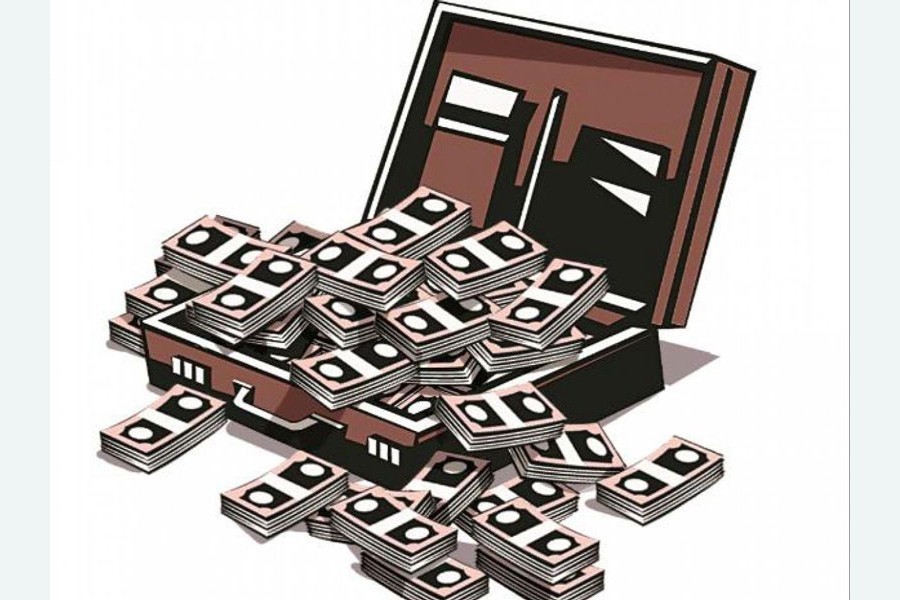
Published :
Updated :

Reports say 11 banks including seven state-owned ones are facing shortage of capital. But one should not be surprised at such reports as the reading public has meanwhile grown bored of newspaper stories on banks overburdened with uncollectible, non-performing loans. From time-to-time reports of fraudsters in bank client's garb swindling banks out of their cash make headlines. In many cases, outsiders, in cahoots with bank officials, loot banks. This is undoubtedly a very bad situation for the banks facing capital shortage as a consequence of various kinds of mismanagement, at best, and malpractices, at the worst. So, what message does people get from the report? Are the said banks failing? Driven by fear, members of the public who maintain savings accounts with those banks might feel like withdrawing their money from their accounts. Thank God, rumour of this kind was not making the rounds to create panic among the public! But there are instances in the past of banks collapsing overnight as panicked account-holders went in a mad rush to take their money out of those banks rumoured to be in the red. So, reports are often apt to send a wrong message to the public. In fact, banks need not collapse due to capital shortage. The regulator, the central bank, by deliberately not taking any disciplinary action for a period of time (this is the so-called policy of regulatory or capital forbearance) against those banks in question, may allow them to resolve their crises through various measures. Those include taking loans, injecting equity and introducing better cash management system. Even if the entire capital of a bank is depleted, it can return to normality by adopting these measures. Of course, the regulator has a major role to play in such a case. Hopefully, our banks running short of capital as reported in the media have already started to take measures to improve their cash situation. Interestingly, when so many banks are ailing for want of cash, the black economy is thriving. This underground economy definitely has no shortage of cash! As expected, another report supports this view as it says that black money worth Tk 10 trillion has been circulating in the market. Various estimates including speculations provide different figures about the size of the country's subterranean market of black economy, which is said to be equivalent to one third of the nation's gross domestic product (GDP). On this score, the public also know of the successive government's efforts over the years to coax the owners of black money, often, euphemistically called undisclosed money, to give the seal of legality on it through simple payment of a penal fee. And in case those black money holders ever think it fit to declare some portion of their money to the tax authority for the purpose of whitening it, they will be allowed to do so without questioning how they got the money or where they got it from!
Consider the situation. When responsible citizens are paying their income tax as part of their duty to the nation, the owners of the black money, on the other hand, who do not see it convenient to disclose are holding back the information about the amount or source of their money with impunity. So, it is not hard to understand their 'potential' as citizens. And this is how they are being looked upon (of course, not by common people) since we became a free nation. So, what is the point, one may argue, of being a good citizen when the distinction between the good and the bad is getting so blurred? Then on what moral ground can one question the behaviour of the Motijheel Ideal School and College official, who happened to have amassed, as the allegation goes, a huge sum of money and had the money held with different bank accounts (some 97 of them)? How much wealth did he amass in this manner according to the reports? As it could be gathered, the amount so far transacted is to the tune of 110 crore! This is no doubt an astronomical amount considering the modest official position the school staff under scrutiny holds. And as expected, the Anti-Corruption Commission (ACC) is learnt to have started the legal proceeding against the person alleged to have committed the offence. Doubtless, this is a commendable move by the law-enforcement agencies to have taken such a step against someone found on the wrong side of the law. But again, what would be our position, say, on the moral ground? Let us consider a different scenario. The possessor of the 'ill-gotten money' under review goes to the tax authority and declares the whole or a part of his 'undisclosed money'. Given the provision of whitening black money, how would the person so holding the black money is supposed to be treated by the tax officials in charge of giving legal seal to that person's illegally held money? Could the tax people question where he got the money from? In the given circumstances, we are not really in a position to lecture someone on being in breach of law or of the norms from a moral high ground!


 For all latest news, follow The Financial Express Google News channel.
For all latest news, follow The Financial Express Google News channel.